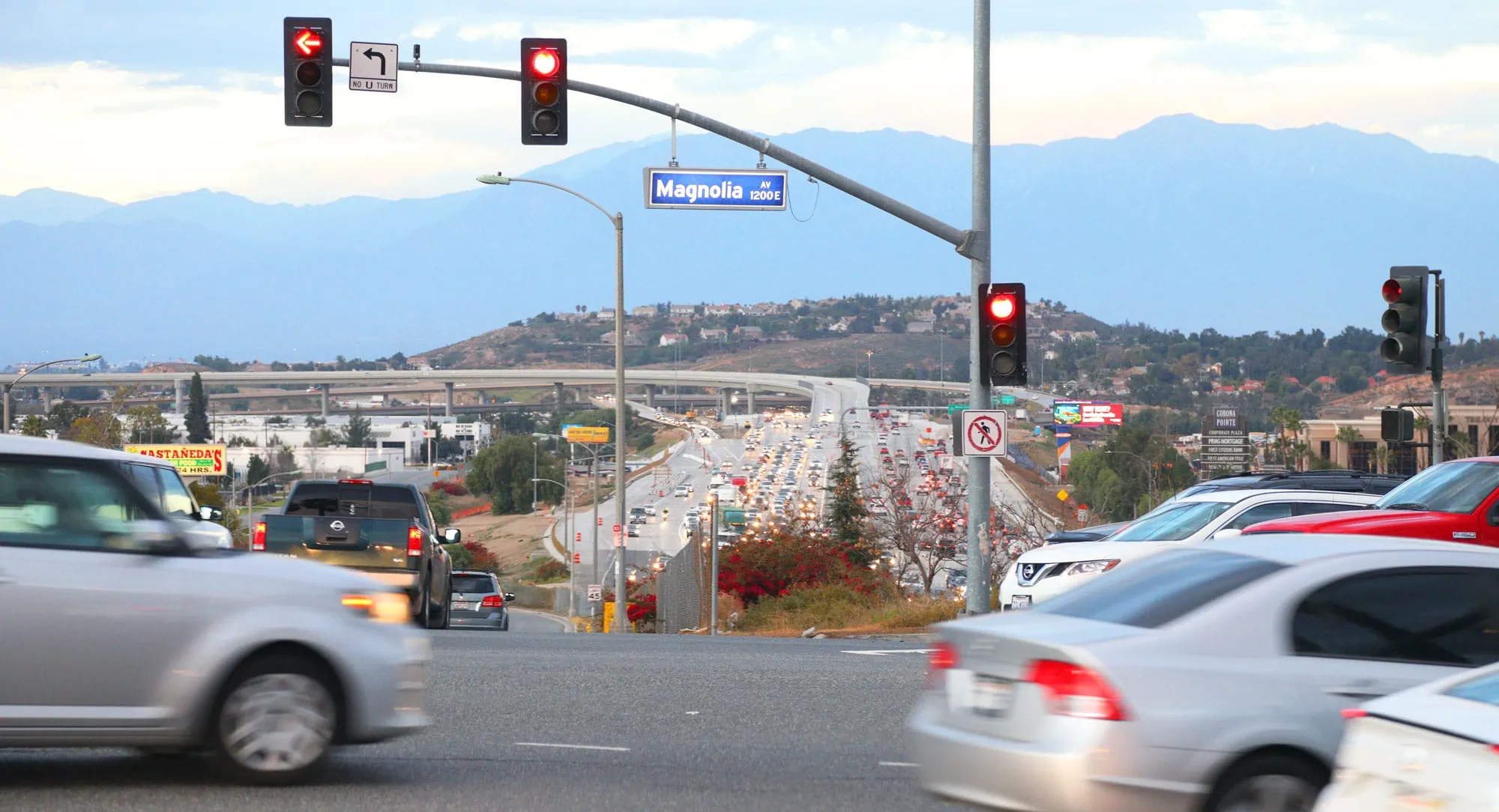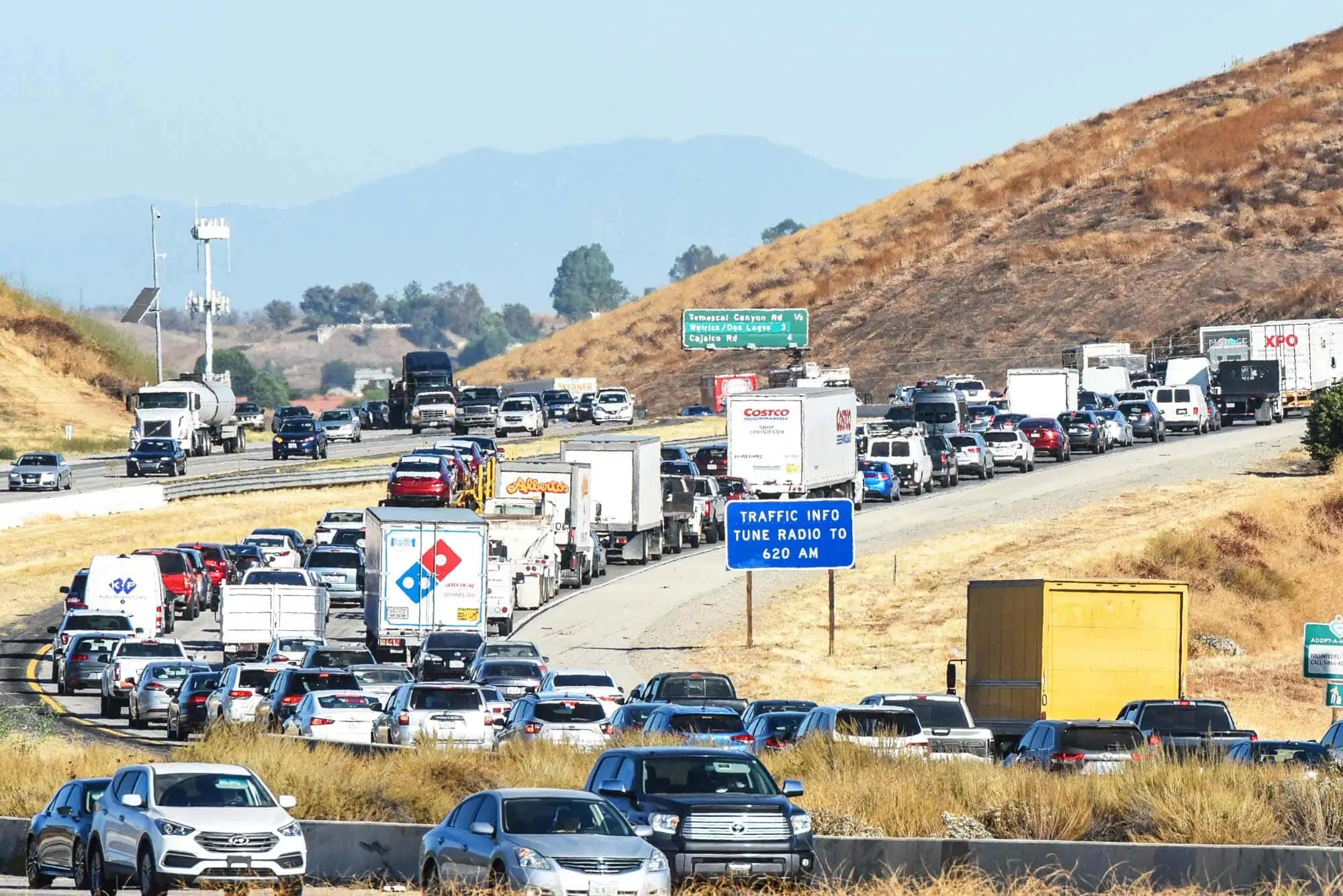The Point: The State wants to fight climate change by shifting people to buses and trains – but without funding for those alternatives, inland residents may be left stalled in endless traffic
A report recently released by the California Strategic Growth Council takes stock of California’s transportation system and its history of project planning, funding, and delivery to explore how the State can make changes to reduce carbon emissions to achieve its climate action goals. The California Transportation Assessment Report makes sweeping recommendations to align all pending and future transportation projects with the State’s climate action policies – including projects approved at the local level and funded with voter–approved sales tax revenue. This report builds on policy changes spearheaded by Governor Gavin Newsom to reduce use of single occupancy vehicles by shifting funding from expanding roads and highways to transit projects.

What does this mean for Riverside County residents? It means traffic will continue to choke the state highway system. And the State hopes that this overwhelming congestion will push residents to switch from driving to walking, biking, and traveling by bus and train.
The problem is, the State has not identified how to fund billions of dollars needed to develop a robust, easy-to-access and on-time multimodal transit system that would enable Riverside County residents in transitioning from driving their own cars.
Instead, decision makers in Sacramento are considering policies that will control how local funds like Riverside County’s voter-approved sales tax measure, Measure A, are to be spent on transportation projects. Funding could be diverted from improvements approved by the voters to projects that align with climate goals but barely move the dial toward reliable transit alternatives.
In all likelihood, inland residents will be forced to either spend exponentially more of their time in traffic or give up their jobs for something closer that still meets their needs.

Contrary to the State’s blunt approach, RCTC believes that state efforts to reduce the impacts of climate change can complement our air quality, health, and economic wellbeing, if implemented the right way. Here is how RCTC is responding to the State:
- RCTC provided comments last year on the California Transportation Agency’s (CalSTA) Climate Action Plan for Transportation Infrastructure (CAPTI), the State’s blueprint for aligning transportation funding programs with state climate action goals;
- RCTC recently submitted comments to the Strategic Growth Council’s California Transportation Assessment Report;
- RCTC opposed AB 2237 by Assemblymember Laura Friedman (Glendale), which would allow the state to reallocate funding previously approved for local projects; and
- RCTC opposed AB 2438, also by Assemblymember Friedman, which would require existing state transportation funding programs to align with state climate goals.
Here’s the bottom line. Without dramatic funding increases from the State and flexibility that respects the diversity of our region, we may never transition to multimodal transit systems that everyone can rely on. And without Riverside County’s success, the State may never get out of first gear.
For more information and to show your support for keeping transportation solutions local, visit: rctc.org/support
